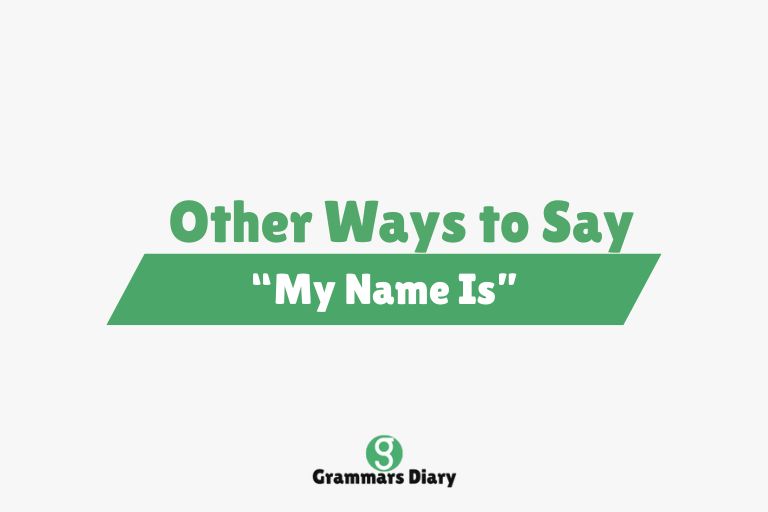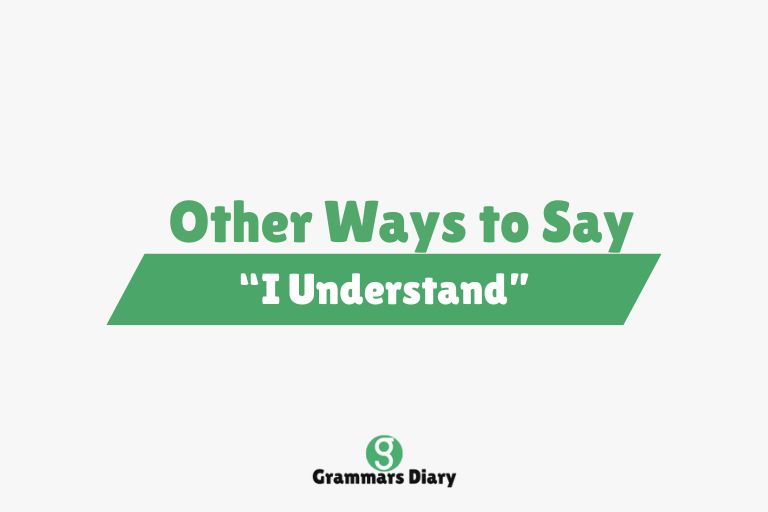25 Other Ways to Say “Have Fun”

“Have fun” is a light-hearted and encouraging phrase we often use when someone is about to do something enjoyable, take a break, or engage in leisure. Whether it’s a child heading off to a birthday party or a friend going on vacation, the phrase carries warmth, goodwill, and a wish for pleasure.
But sometimes, you may want to express the same sentiment using a different tone—maybe more playful, professional, expressive, or unique. That’s where having a wider vocabulary can elevate your communication. Whether you’re sending a cheerful text, writing an email, or making a caption more engaging, there are plenty of alternatives to “have fun” that sound fresh and thoughtful.
This post will guide you through 25 alternative ways to say “have fun,” complete with explanations, examples, and contexts to help you say it better, every time.
Other Ways to Say “Have Fun”
Here are 25 expressive alternatives to “have fun,” along with detailed meanings and long example sentences to help you understand how to use each one naturally.
1. Enjoy Yourself
Example: “I hope you enjoy yourself at the concert tonight—it sounds like an amazing show you’ve been waiting for.”
Meaning: A warm and sincere wish for someone to have a good time, often used in both formal and casual contexts.
Usage: Universally appropriate, from personal messages to professional well-wishes.
2. Have a Blast
Example: “You’re going to that new amusement park tomorrow, right? Have a blast and take lots of pictures.”
Meaning: Implies having an extremely good time filled with excitement and energy.
Usage: Perfect for casual and youthful conversations, especially when referring to events or activities with high entertainment value.
3. Live It Up
Example: “You’ve worked so hard all year, so take this vacation to live it up and forget about deadlines for a while.”
Meaning: Suggests enjoying life to the fullest, often during vacations or special occasions.
Usage: Best used in relaxed or celebratory contexts.
4. Knock Yourself Out
Example: “Feel free to try every flavor at the dessert table—knock yourself out and don’t hold back.”
Meaning: A casual and humorous way to tell someone to indulge or enjoy something freely.
Usage: Informal, often used when giving someone permission to fully enjoy an activity or opportunity.
5. Have a Good Time
Example: “The family reunion is finally happening this weekend—have a good time catching up with everyone.”
Meaning: A basic yet sincere way of wishing someone well during an event or activity.
Usage: Versatile and acceptable in nearly all conversational settings.
6. Make the Most of It
Example: “Even if the weather isn’t perfect for your beach trip, try to make the most of it and enjoy the moment.”
Meaning: Encourages someone to enjoy something to the fullest, even if circumstances aren’t ideal.
Usage: Helpful in situations where someone might need a little encouragement or perspective.
7. Have a Whale of a Time
Example: “The kids had a whale of a time at the zoo today—they couldn’t stop talking about the elephants.”
Meaning: A playful, old-fashioned phrase that means to have an exceptionally good time.
Usage: Often used to describe joyful, child-like fun, especially when recounting events.
8. Treat Yourself
Example: “You’ve been saving up for months, so go out, treat yourself to a nice meal, and enjoy the night.”
Meaning: Encourages someone to do something special for themselves as a form of self-care or reward.
Usage: Often used in the context of self-indulgence or celebration.
9. Let Loose
Example: “You’re always so focused on work—tonight’s party is your chance to let loose and just be yourself.”
Meaning: Suggests shedding inhibition and relaxing fully, often in social or festive environments.
Usage: Informal and commonly used among friends or peers.
10. Party Hard
Example: “It’s your birthday weekend—party hard, but don’t forget to stay hydrated.”
Meaning: A high-energy expression encouraging someone to celebrate enthusiastically.
Usage: Popular in younger or more informal social groups.
11. Soak It All In
Example: “You’ll only be in Paris once this year—soak it all in and take time to enjoy every detail.”
Meaning: Encourages mindful, deep enjoyment of surroundings or experiences.
Usage: Suitable for travel, life milestones, or meaningful experiences.
12. Kick Back and Relax
Example: “You’ve had a tough week—kick back and relax this weekend with a good movie and no emails.”
Meaning: A calm and comforting way to suggest rest and light enjoyment.
Usage: Works best in relaxing or downtime scenarios.
13. Go Have a Laugh
Example: “The stand-up show tonight is supposed to be hilarious—go have a laugh and forget about your worries.”
Meaning: Suggests engaging in joyful, humorous activities for emotional relief and pleasure.
Usage: Fits well when recommending comedy or social outings.
14. Revel in It
Example: “The spotlight is finally on you—revel in it and enjoy every moment of the recognition.”
Meaning: Implies full, almost celebratory immersion in an experience, especially when it’s well-earned.
Usage: Slightly more formal or dramatic, often used in contexts of success or admiration.
15. Take It All In
Example: “When you reach the mountain peak, take it all in—the view, the air, the sense of accomplishment.”
Meaning: Suggests full appreciation of a moment or experience, emphasizing emotional presence.
Usage: Often used in meaningful, picturesque, or memorable settings.
16. Indulge Yourself
Example: “You’re always so disciplined with your routine—take the weekend to indulge yourself with your favorite hobbies or foods.”
Meaning: Suggests doing something purely for personal enjoyment, without guilt or restraint.
Usage: Best suited for self-care, rest days, or moments when someone deserves a reward.
17. Go Wild
Example: “It’s your bachelorette party, so go wild and enjoy the night however you want.”
Meaning: A fun and slightly exaggerated way of saying to let go of restrictions and have a high-energy, memorable experience.
Usage: Informal, used in party, festival, or celebration contexts.
18. Savor the Moment
Example: “Your graduation ceremony will go by fast—savor the moment and appreciate everything around you.”
Meaning: Encourages mindful enjoyment and deep appreciation of a significant experience.
Usage: Appropriate for milestone events or once-in-a-lifetime occasions.
19. Take Joy in It
Example: “Even if the project is small, take joy in it—you’ve put in meaningful effort.”
Meaning: Highlights the value of finding happiness in any activity, even routine or minor ones.
Usage: Often used to bring attention to everyday pleasures or overlooked moments.
20. Have a Great Time
Example: “Have a great time at the family barbecue—I hope it’s full of good food and laughter.”
Meaning: A slightly more polished version of “have fun,” while still maintaining warmth.
Usage: Perfect for casual but polite conversations and written messages.
21. Make Happy Memories
Example: “Enjoy your weekend getaway—make happy memories you’ll look back on fondly.”
Meaning: Implies not just enjoyment, but creating lasting, meaningful moments.
Usage: Common in well-wishing, especially for special trips, holidays, or milestones.
22. Do Something That Makes You Smile
Example: “After a stressful week, do something that makes you smile—even if it’s as simple as watching your favorite movie.”
Meaning: A personal and thoughtful way to encourage someone to seek out joy.
Usage: Great in supportive or caring messages.
23. Rock On
Example: “You’ve got front-row tickets to the show? Rock on and enjoy every second of it!”
Meaning: A fun and enthusiastic phrase associated with concerts, music, and energetic fun.
Usage: Informal, often used in youthful or musical settings.
24. Bask in the Joy
Example: “You’ve earned this success—bask in the joy of your achievement.”
Meaning: Encourages someone to fully absorb and enjoy a well-deserved positive experience.
Usage: Best used in situations involving accomplishments or recognition.
25. Get Your Smile On
Example: “You’re heading to the beach with your best friends? Get your smile on and soak up every bit of fun.”
Meaning: A playful phrase that promotes embracing positivity and enjoyment.
Usage: Suitable for casual conversations and cheerful social settings.
When to Use Different “Have Fun” Alternatives
In Professional Settings
In more formal or workplace environments, you may want to use expressions like “enjoy yourself,” “have a great time,” or “savor the moment,” as these retain professionalism while expressing good wishes. They’re ideal for farewell emails, birthday messages for colleagues, or client interactions.
In Casual Conversations
Among friends, family, or peers, go for more playful alternatives like “have a blast,” “live it up,” or “go wild.” These carry a tone of genuine excitement and allow for more relaxed and spontaneous interaction.
On Social Media or Creative Content
For captions or messaging on platforms like Instagram or Pinterest, more creative phrases such as “get your smile on,” “make happy memories,” or “bask in the joy” can elevate your content, making it feel engaging, positive, and original.
Conclusion
While “have fun” is a go-to expression in many conversations, it’s not the only way to show enthusiasm or send someone off with good vibes. From thoughtful alternatives like “savor the moment” to energetic ones like “go wild,” having a richer vocabulary lets you tailor your tone to fit the occasion, audience, and emotion behind your message. Whether you’re writing a card, posting online, or simply chatting, these 25 expressions give you plenty of options to choose from.
FAQs
What does “have fun” mean?
“Have fun” is a casual phrase used to wish someone an enjoyable time while they participate in an activity or event.
Is “have fun” formal or informal?
“Have fun” is generally informal, though it’s widely accepted in everyday conversation. For more professional settings, alternatives like “enjoy yourself” or “have a great time” may be better suited.
Can I use these alternatives interchangeably?
Yes, but choose your phrasing based on context. For example, “go wild” may not be appropriate in a work email, while “savor the moment” works well in both personal and formal contexts.






